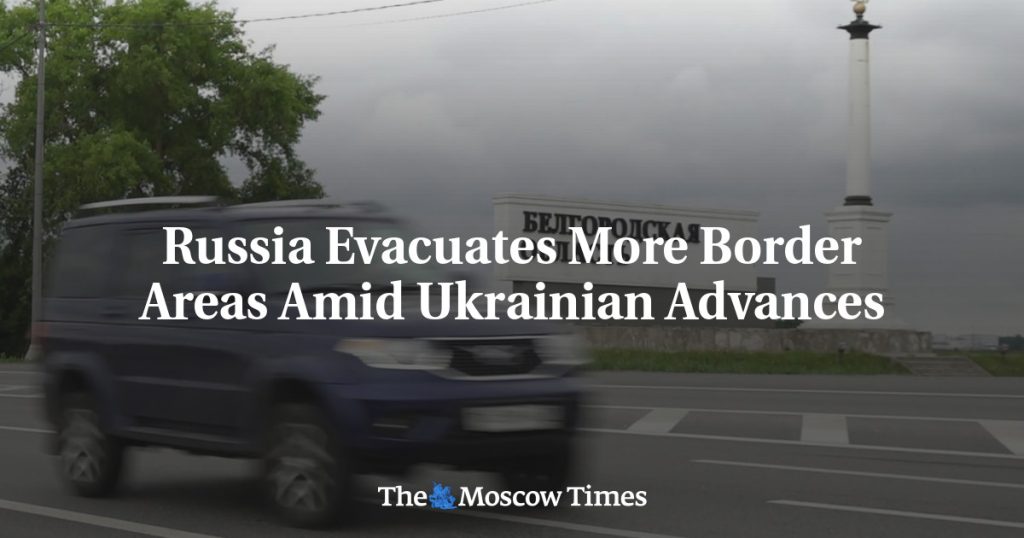Authorities in Russia’s Kursk and Belgorod regions have ordered the evacuation of areas near the border with Ukraine as Ukrainian forces continue to make advances into Russian territory. More than 76,000 people have been relocated to safe places in the Kursk region alone since the offensive began. Nikolai Volobuyev, head of the Belovsky district, urged residents to evacuate after Ukrainian forces pushed further into the area. Russia’s Defense Ministry claimed to have repelled Ukraine’s attempts to enter the Belovsky district, but the situation remains volatile.
In the neighboring Belgorod region, Governor Vyacheslav Gladkov ordered the evacuation of the Krasnoyaruzhsky district, south of the Belovsky district. This evacuation was deemed necessary for public health and safety reasons. Moscow has launched counterterrorism operations in the border regions of Kursk, Belgorod, and Bryansk, giving the military extensive emergency powers to combat Ukraine’s offensive. The Defense Ministry reported that Russian air defense systems destroyed 18 Ukrainian drones overnight, including 11 in the Kursk region. Kyiv has not officially claimed responsibility for the incursion and has maintained operational silence on the situation.
Ukrainian President Volodymyr Zelensky hinted at the ongoing conflict, stating during an address that Kyiv was pushing the war into the aggressor’s territory and demonstrating its ability to bring justice and pressure on the aggressor. The situation remains tense as both sides navigate the evolving dynamics of the conflict. The authorities in Russia are responding to the crisis with evacuations and military operations to protect the affected regions. These developments are part of a larger pattern of escalation between Russia and Ukraine in the ongoing conflict.
The conflict between Russia and Ukraine has intensified in recent weeks, with Ukrainian forces making advances into Russian territory, prompting evacuations and military responses from Moscow. The evolving situation along the border has raised concerns about the potential for further escalation and instability in the region. The ongoing conflict has significant implications for both countries and the broader international community. As the situation unfolds, it is essential for all parties involved to prioritize dialogue and de-escalation to prevent further violence and loss of life.
The conflict in the border regions of Kursk and Belgorod underscores the complex and volatile nature of the ongoing tensions between Russia and Ukraine. The evacuation orders and military operations reflect the escalating situation on the ground, with both sides engaging in aggressive tactics to protect their interests. The international community will be closely monitoring developments in the region and working towards a peaceful resolution to the conflict. It is crucial for all parties to prioritize diplomacy and dialogue to prevent further escalation and ensure the safety and security of the affected populations.
In the midst of the escalating conflict, independent journalism plays a crucial role in reporting on the situation and providing accurate and unbiased information to the public. The Moscow Times, facing challenges and threats from Russian authorities, continues to uphold its commitment to independent journalism and providing accurate reporting on the unfolding crisis. The support of the readers is essential in empowering independent media outlets to continue their vital work in the face of repression and censorship. By standing with organizations like The Moscow Times, individuals can defend open and independent journalism in the face of adversity.














